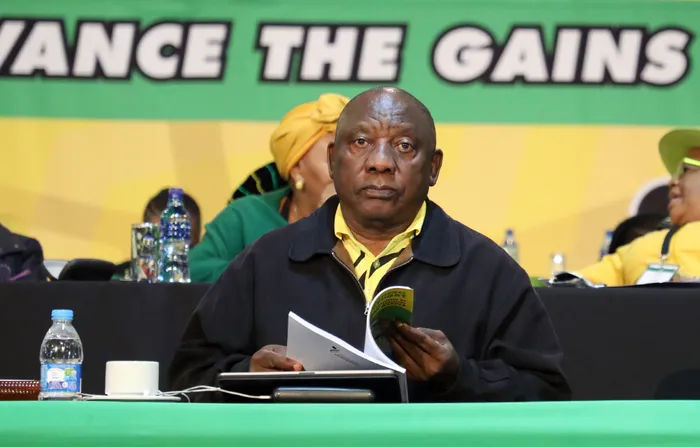A reminder that the ANC was not ordained to rule forever

The ANC leadership should rally behind President Cyril Ramaphosa in his efforts to deal with corruption, says the writer. Picture: Oupa Mokoena/African News Agency(ANA)
Zama Feni
Cape Town - Touching on the lyrics of the late reggae legend Peter Tosh’s song Pick myself up, it’s time for the governing ANC to pick itself up, dust itself off and start all over again.
With the nation going to the polls next year, speculation is rife that the ANC might see itself entering into marriages of convenience with rival parties to form a coalition government at national level.
In the interest of national stability, we would like to see the ANC not getting into coalitions with other parties in all levels of governance.
Despite the financial shenanigans that prominent leaders in the ANC-led government are, and have been, engaged in as well as its own internal power struggles, the ANC is still a strong political brand.
Nevertheless, that won’t be reason enough for the ANC to rest on its laurels, as its grip on power is close to hanging by a thread.
Even though the ANC brand still appeals as a symbol of hope to the poorest citizens, its appeal is not as blazingly bright, attractive and convincing as it was during the first two decades of this democratic dispensation.
And this is a reminder to comrades that the ANC was not ordained to rule forever, irrespective of its glorious Struggle history.
The sloganeering and campaign messages of the ANC-led the liberation Struggle, the late Struggle legends OR Tambo and Nelson Mandela did this and that ... will now sound hollow in the ears of many, especially young people.
The chaos, betrayals and mud slinging that we have witnessed in Gauteng’s three metros under coalition administrations have explicitly shown us that the political climate in South Africa is not mature enough for coalition governments.
We have seen the kingmakers doing all kinds of power gambles to frustrate their rivals, left and right.
Coalitions can create fertile grounds for a disabled administration, civil disobedience and poor service delivery – when elephants fight, it’s the grass that suffers.
The chopping and changing of mayors in Joburg, Ekurhuleni and Tshwane metros served no good to the public, but only quenched the pulsating egos of those politicians who were entangled in their municipal party political battles.
We cannot, in any way, expect normality in an environment of abnormal political marriages with no firm political authority.
The DA-led City of Cape Town is a shining example among all the metros in so far as service delivery is concerned.
This is due to its firm political authority, as it is not married to any rival party in its governance.
What will be the biggest threat to the ANC not getting an absolute majority is voter apathy from a significant chunk of voters.
These voters come from its traditional strongholds in rural areas, townships and the sprawling informal settlements on the margins of cities.
These are constituencies that can help the ANC to make the cut, but the first question is whether they will come to the voting stations in numbers.
Nevertheless, the ANC brand is still so deeply entrenched in the mindsets of black people, that there is currently no party that can claim it will take them out of the Union Buildings next year.
Even the DA as the second biggest party in the country trails far behind the ANC, and can’t close the gap in the near future.
However, that should not be a reason to celebrate while metros in Gauteng – the country’s economic powerhouse – are governed by coalitions and the opposition DA in Cape Town.
The ANC leadership should rally behind President Cyril Ramaphosa in his efforts to deal with corruption.
Comrades with no rectitude, leadership skills, and most importantly, a passion and political will to serve, are not supposed to lead.
Feni is a former journalist and a former government communications practitioner. He is a Khayelitsha resident.
Cape Times
* The views expressed do not necessarily reflect the views of IOL or Independent Media.
Related Topics: